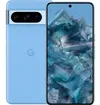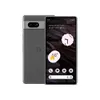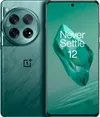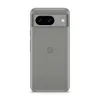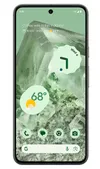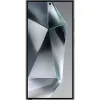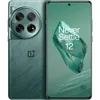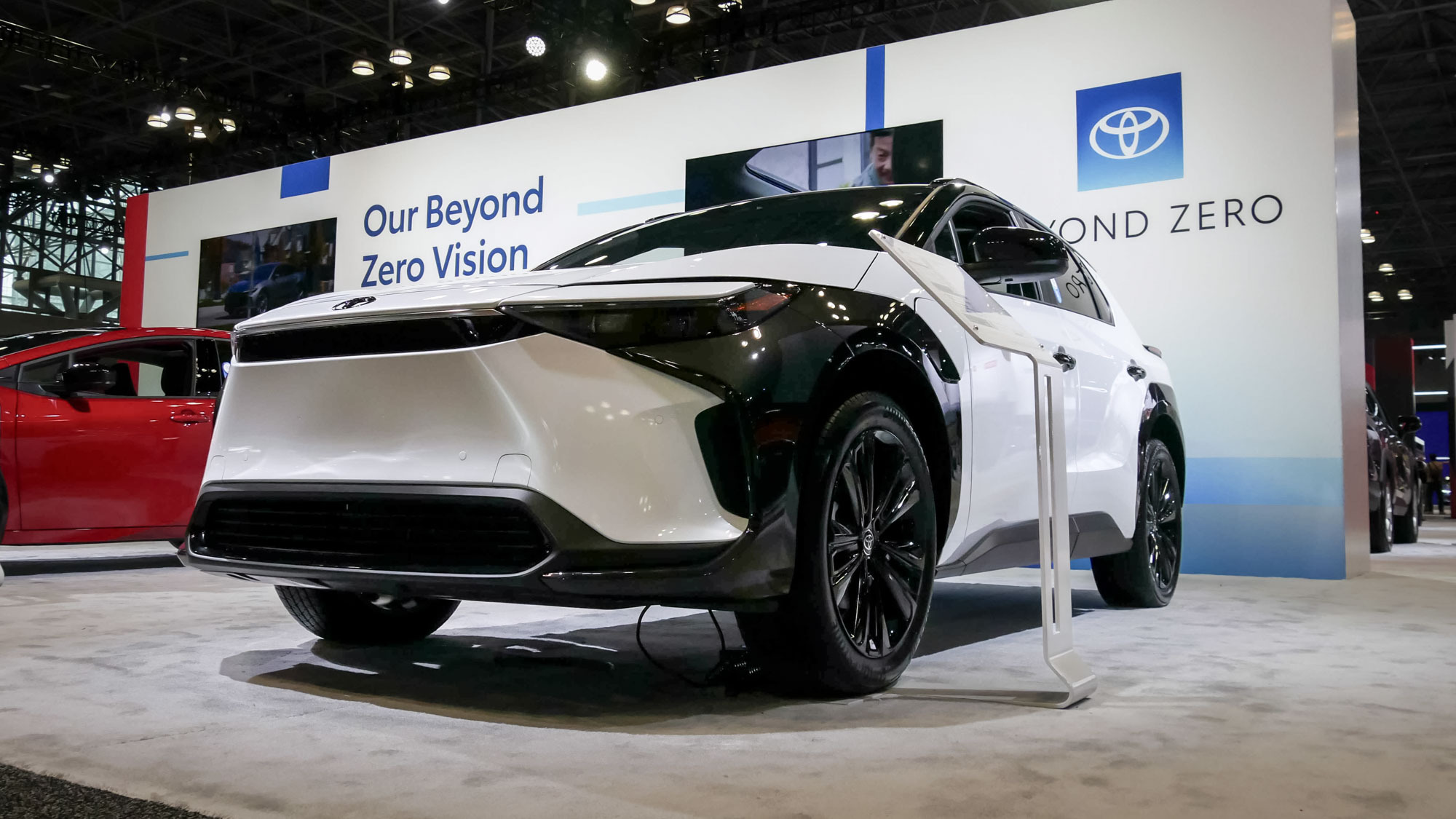Google Pixel 9 Pro Fold is here — everything you need to know
Here's what you need to know about the new Google foldable
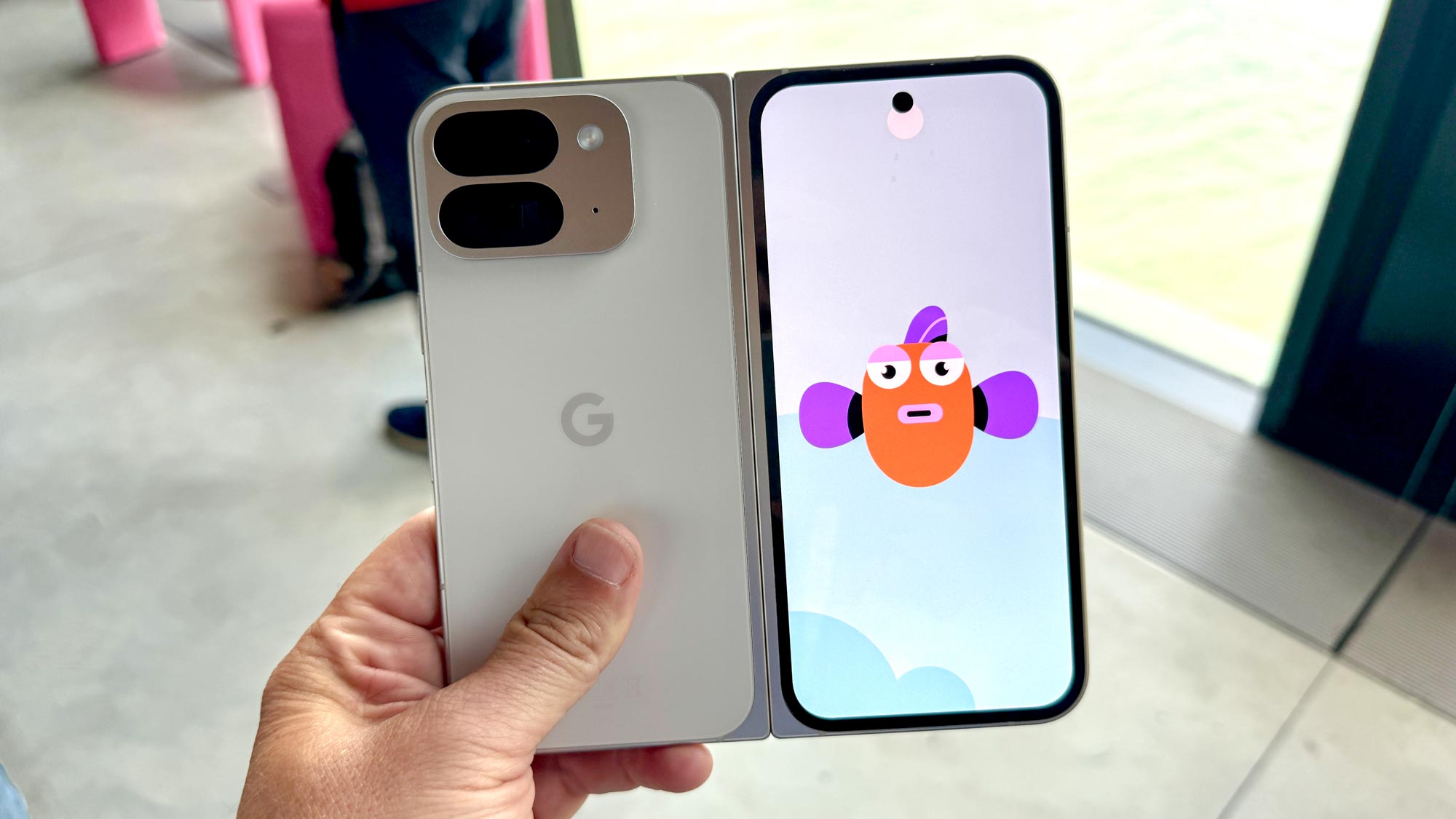
Disclaimer
The Google Pixel 9 Pro Fold is officially on sale, but before you pick one up for yourself be sure to check out our full Google Pixel 9 Pro Fold review for the lowdown on the new foldable.
The Google Pixel 9 Pro Fold may sport a new name, but that's probably the least interesting change Google has made with its second-generation foldable. In fact, as my colleague John Velasco mentioned in our Google Pixel 9 Pro Fold review, this is the phone we wish the original Pixel Fold had been from day one.
John felt that the phone's new design makes it look and feel much more like a serious contender for our best foldable phones list, alongside the largest screen on any foldable available in the U.S. and bunch of refinements and changes that make the experience considerably more enjoyable. Plus, like the rest of the Pixel 9 series, there's a whole range of exclusive AI features to exploit — powered by the new Tensor G4 chipset and Gemini.
But the real question is whether Google's improvements are enough to outdo rival foldables from the likes of Samsung or OnePlus. You can get the full rundown in our Google Pixel 9 Pro Fold review, but for now here's an overview of what you need to know about the Pixel 9 Pro Fold and how it compares to what's already out there.
Google Pixel 9 Pro Fold cheat sheet: The major changes
- The Google Pixel 9 Pro Fold joins the Pixel 9 lineup, allowing it to be powered by the new Tensor G4 system-on-chip found in other phones announced by Google earlier this year.
- Google has reduced the bezels surrounding the main display of the Pixel 9 Pro Fold, leaving an 8-inch screen when the device is unfolded.
- The cover display is also larger than the 5.8-inch panel on the Pixel Fold, expanding to 6.3 inches.
- Changes to the hinge help make the Pixel 9 Pro Fold only 5.1mm thin when open, compared to 5.8mm for the Pixel Fold.
- New AI features include Add Me for group shots, Call Notes for recording and summarizing phone calls and Pixel Screenshots for searching the contents of screenshots you've captured on your Pixel 9 Pro Fold.
Google Pixel 9 Pro Fold pricing and availability
The Pixel 9 Pro costs $1,799/£1,749, the same starting price for the Pixel Fold. That news comes just after Samsung debuted the Galaxy Z Fold 6, which saw a $100 increase from its predecessor to an $1,899 starting price. The OnePlus Open continues to be the least expensive foldable phone with this book-style design, as it's available for $1,699.
The Pixel 9 Pro Fold is on sale now at major retailers, carriers and the Google Store.
Google Pixel 9 Pro Fold specs
| Row 0 - Cell 0 | Row 0 - Cell 1 |
| Price | from $1,799 |
| Chip | Tensor G4 |
| RAM | 16GB |
| Storage | 256GB, 512GB |
| Main display | 8 inches OLED (2076 x 2152, 1-120Hz) |
| Cover display | 6.3 inches OLED (1080 x 2424, 60-120Hz) |
| Rear cameras | 48MP wide (f/1.7), 10.5MP ultrawide (f/2.2, 82°), 10.8MP telephoto f/3.1, 5x zoom, 20x digital zoom) |
| Front camera | 10MP f/2.2) |
| Inner camera | 10MP (f/2.2) |
| Video | 4K up to 60 fps |
| Battery | 4,650 mah |
| Charging | 45W |
| Colors | Obsidian, Porcelain |
| Size folded | 6.1 x 3.0 x 0.4 inches (155.2 x 77.1 10.5mm) |
| Size unfolded | 6.1 x 5.9 x 0.3 inches (155.2 x 150.2 x 5.1mm) |
| Weight | 9.1 ounces (257 grams) |
Google Pixel 9 Pro Fold: What's new
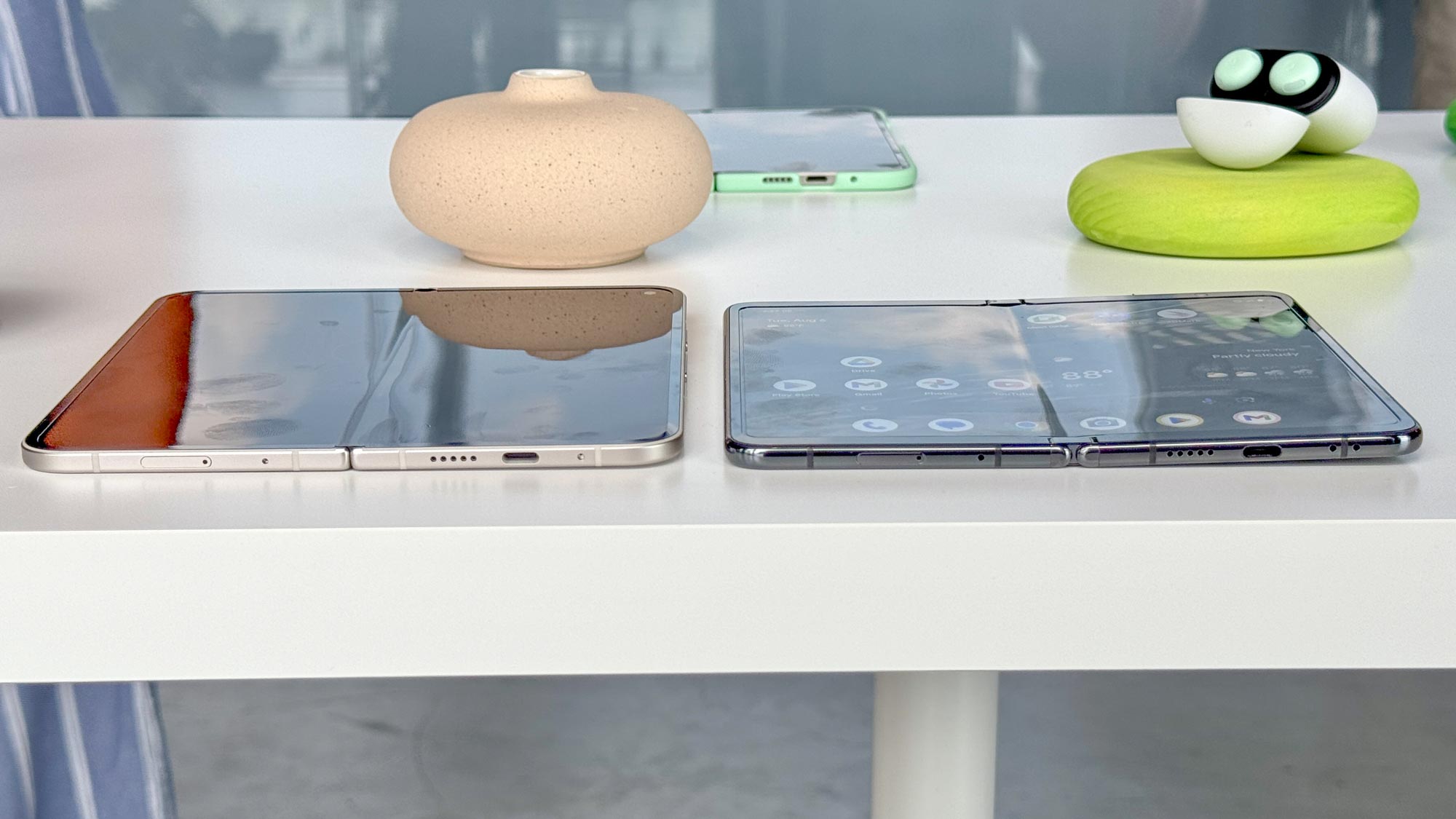
Design tweaks lead the changes to the Google Pixel 9 Pro Fold. Google has switched up the hinge so that it's not only more durable — it's made of stainless steel with an aluminum alloy cover — but it also helps streamline the design of the new Fold.
At 6.1 x 5.9 x 0.2 inches, the Pixel 9 Pro Fold is marginally thinner than the Pixel Fold when opened, and when we're talking foldable phones, every little bit helps. A drop in weight — nearly a full ounce — should also help make the Pixel 9 Pro Fold easier to carry around.
Sign up to get the BEST of Tom's Guide direct to your inbox.
Get instant access to breaking news, the hottest reviews, great deals and helpful tips.
There's a slight change to the look of Google's foldable with the horizontal camera bar running across one side of the Pixel Fold's back giving way to a rectangular camera array on the Pixel 9 Pro Fold. Cameras are stacked on top of each other in that array.
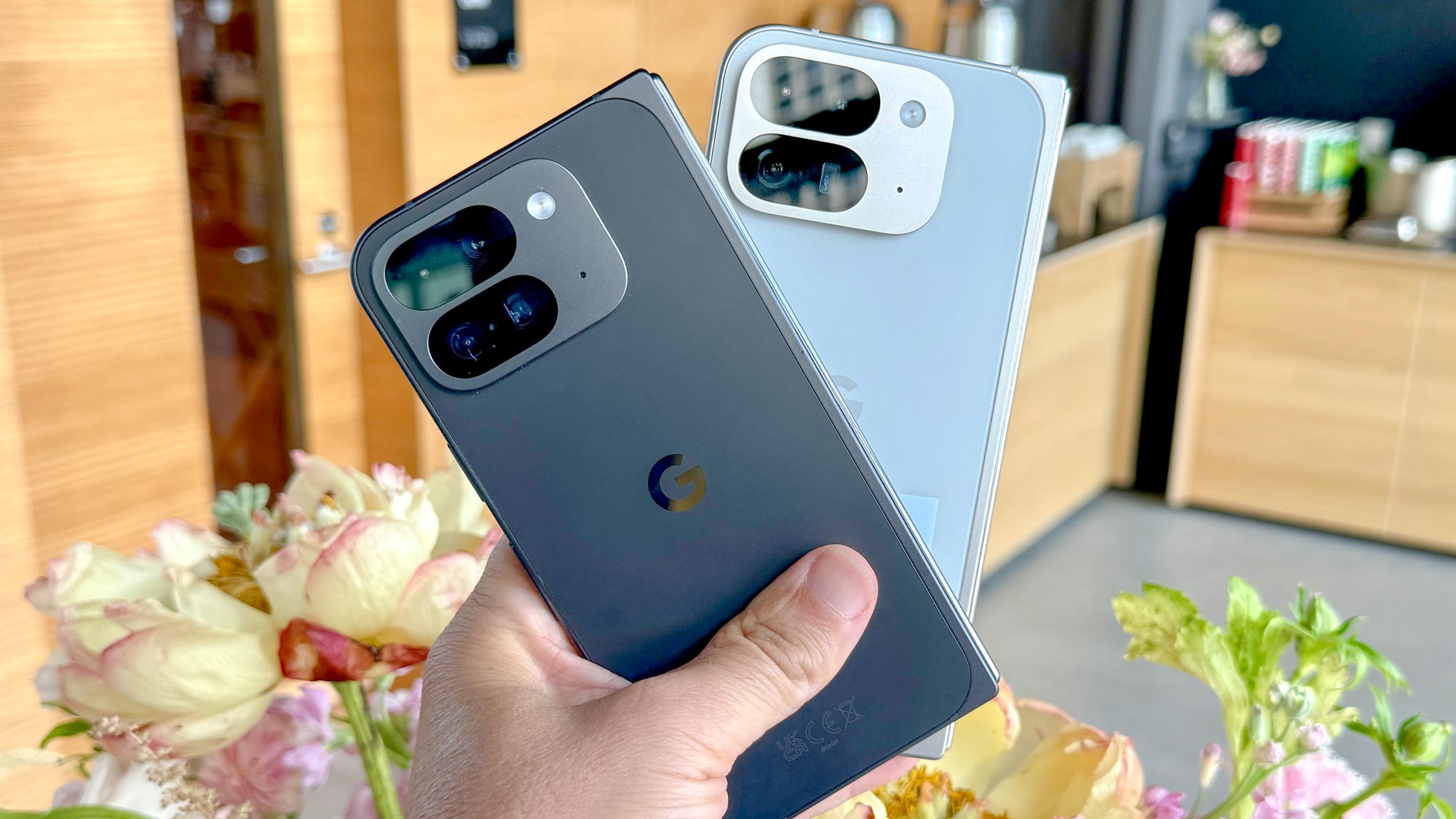
The biggest flaw on the Pixel Fold was some fairly thick bezels around the interior display. Those have been shrunken down to a more acceptable size on the Pixel 9 Pro Fold, which makes that screen 8 inches instead of 7.6 inches. This makes it the largest foldable available in the U.S. right now.
Similarly, Google has changed the aspect ratio on the cover display, so that it's more narrow than before. However, that also means a bigger screen — 6.3 inches on the Pixel 9 Pro Fold compared to 5.8 inches on the Pixel Fold.
Both displays are brighter than before, with Google claiming the interior and cover screens can reach a maximum brightness of 2,700 nits. Our testing data showed the phone hit a peak brightness of 2,319 — which isn't far off what Google's advertising
Apart from design and display additions, the other noteworthy change to this version of Google's foldable involves the Tensor chip powering the device. Google is using a Tensor G4, and by delaying the Pixel Fold follow-up so that it could be part of the Pixel 9 release, that means Google's foldable can jump all the way from a Tensor G2 in the original Fold.
Our benchmark tests proved what we expected, and that the Tensor G4 is not a performance powerhouse. Google's in-house chips never have been, and from a raw performance viewpoint the Pixel 9 Pro Fold seriously lags behind more powerful; rivals.
That said Tensor does deliver new AI features to the Pixel 9 Pro Fold. These include the ability to search for screenshots by their content and recording and transcribing phone calls. Google includes Gemini onboard the Pixel 9 Pro Fold, and as with the other Pixel 9 Pro models, you'll get a year's subscription to Gemini Advanced for access to the more powerful version of Google's chatbot.
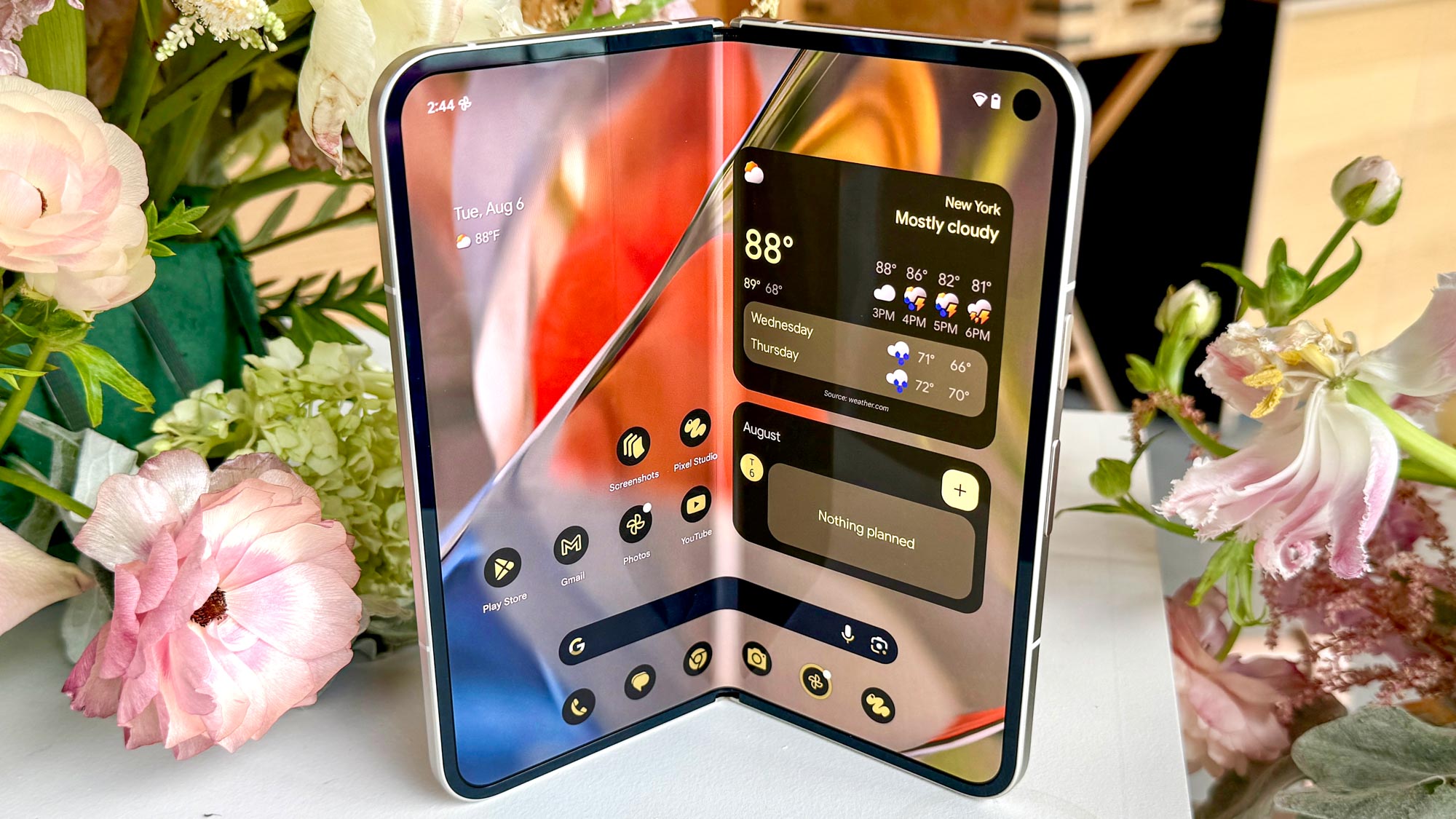
Camera improvements are pretty much non-existent with one change from the Pixel Fold being a downgrade of a sort — the ultrawide lens now uses a 10.5MP sensor instead of a 10.8MP one. The front camera gets a small boost to a 10MP sensor.
Instead of hardware changes, Google has put its efforts into photo-processing features, leaning heavily on AI. Add Me lets you insert yourself into the group shots you capture by combining two photos into one. And Reimagine lets you tweak the photos you've taken with text prompts. A Made You Look feature takes advantage of the Pixel 9 Pro Fold's cover display by showing animations to get recalcitrant kids to look at the camera when you're photographing them.
Like the Pixel Fold, the Pixel 9 Pro Fold launched running Android 14, but has since been upgraded to Android 15 now that the software update is finally available. Google now offers seven years of software and security support for phones like the Pixel 9 Pro Fold, an improvement over the three years of software updates and five years of security coverage for the Pixel Fold.
The Pixel 9 Pro Fold is, unfortunately, missing some of the key video features that we expected to see. We have found that the Pixel 9 Pro Fold is missing some of the Video Boost with AI features. Additionally, it doesn't support Video Boost with 20x lossless video with Super Res Zoom. For reference, The Video Boost with AI feature allows Pixel 9 Pro to take 4K video and use AI to bump it up to 8K resolution.
Google Pixel 9 Pro Fold: How it compares to other phones
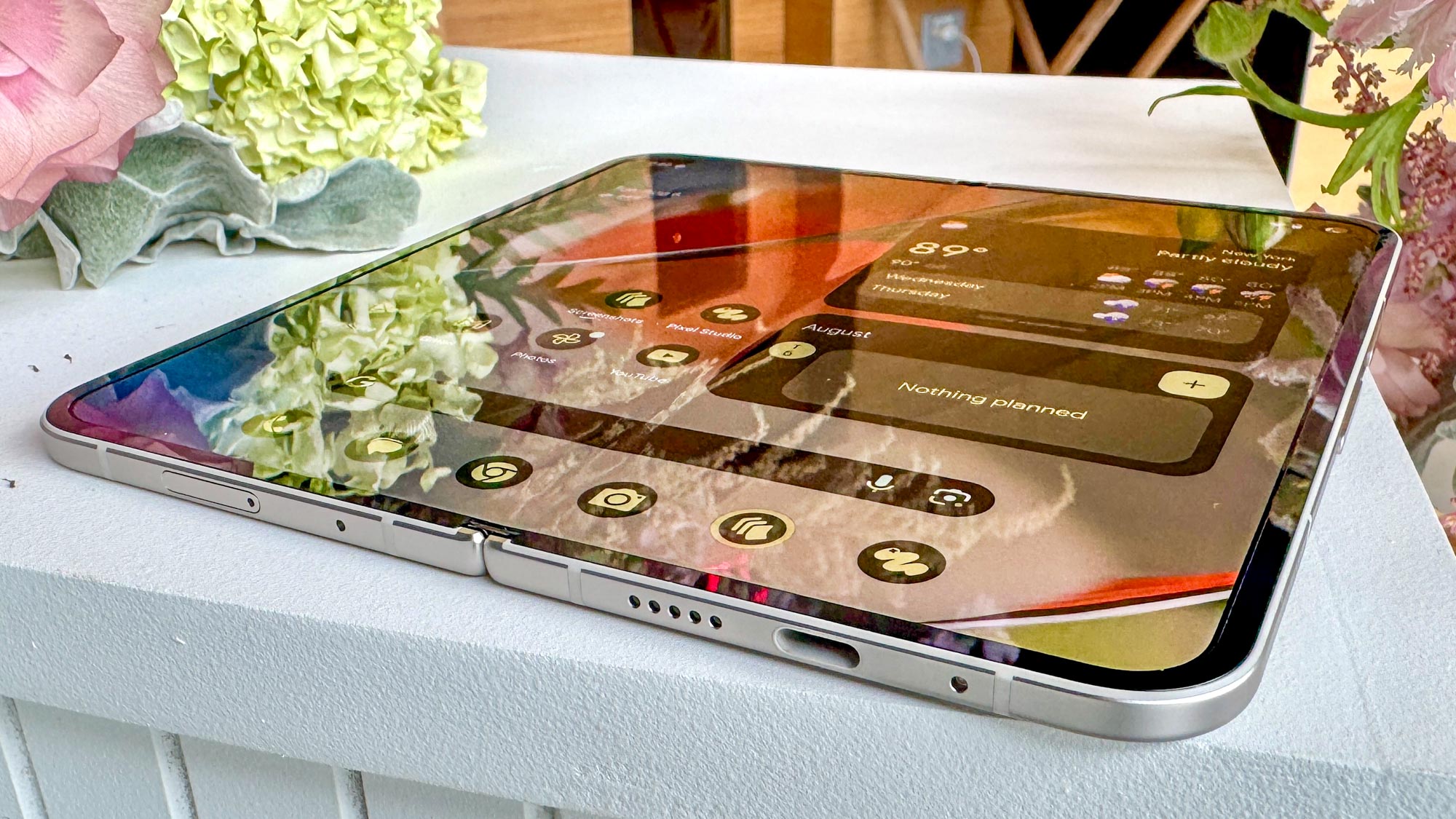
The Google Pixel 9 Pro Fold will invite comparisons to the Galaxy Z Fold 6 and the OnePlus Open — the first phone came out a month before Google's device and the latter currently ranks as the best foldable phone in our estimation.
For a while, the Galaxy Z Fold 6 could claim that it was the thinnest foldable at 5.6mm when opened, but the Pixel 9 Pro Fold now has it beat. At least, Samsung can still say it offers a lighter foldable, as the Galaxy Z Fold 6 weighs in at 8.4 ounces.
The Pixel 9 Pro Fold has the largest interior display among this trio of foldable phones, with the Galaxy Z Fold 6 offering a 7.6-inch panel and the OnePlus Open's main screen reaching 7.82 inches. The cover screens on all three phones are about the same size after Google extended the exterior panel on its new phone. The Samsung Galaxy Z Fold SE does have an 8-inch foldable display of its own, but right now that's only available in South Korea.
The Tensor G4 doesn't figure to keep up with the performance of the Snapdragon 8 Gen 3 chipset powering the Galaxy Z Fold 6, but the real comparison we're looking forward to is matching up the AI features of the Google and Samsung foldables.
We like that the Galaxy Z Fold 6 introduces some AI capabilities that take advantage of its dual screens, like the way you can carry on a conversation with another person in Interpreter mode with transcripts appearing on both the cover and interior screens. But Google Translate offers a similar capability for the Pixel 9 Pro Fold. However we found that the Pixel 9 Pro Fold absolutely annihilated the Z Fold 6 in the camera testing — suggesting that Tensor G4-powered photography is doing some good.
Sadly, in typical Google Tensor style, the performance coming from the chip is lackluster. Benchmarking figures have shown that the phone is indeed more powerful than the original Pixel Fold, as you'd hope, but severely lags behind the Galaxy Z Fold 6.
Google Pixel 9 Pro: Outlook
Though we've spent a little time with the Pixel 9 Pro Fold, we'll still need to test its cameras, chipset, displays and AI features before reaching a comprehensive verdict. Our initial impression is that there are some clear improvements over the Pixel Fold, and that original foldable was pretty solid to begin with. AI features seem particularly impressive at first glance, and we like the new design for the phone.
Stay tuned for more as our Pixel 9 Pro Fold test results come in. But read the Tom's Guide Pixel 9 Pro Fold review to see what we make of it right now.
More from Tom's Guide
- Samsung Galaxy S25 Ultra: All the rumors so far
- I just went hands-on with Huawei’s triple-foldable phone — and I’m amazed
- Best phone battery life in 2024: The longest lasting smartphones
Philip Michaels is a Managing Editor at Tom's Guide. He's been covering personal technology since 1999 and was in the building when Steve Jobs showed off the iPhone for the first time. He's been evaluating smartphones since that first iPhone debuted in 2007, and he's been following phone carriers and smartphone plans since 2015. He has strong opinions about Apple, the Oakland Athletics, old movies and proper butchery techniques. Follow him at @PhilipMichaels.
